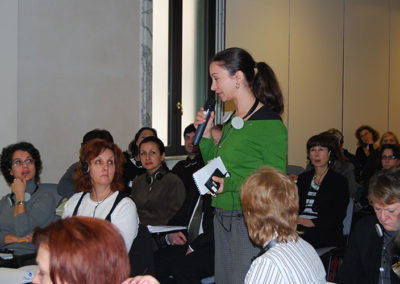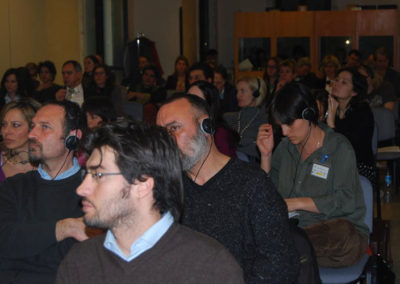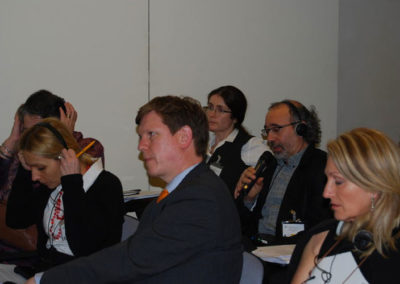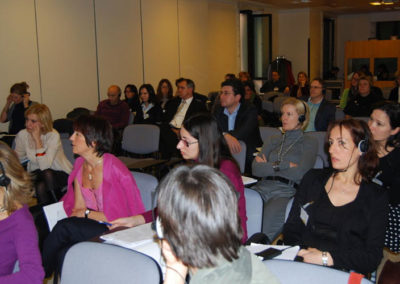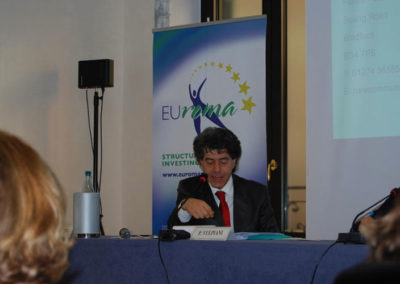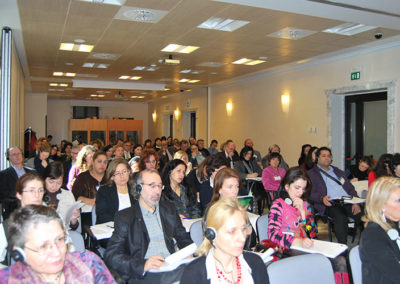This EURoma event aimed at exchanging experiences between local and regional administrations working for the improvement of the living conditions of the Roma communities, gathered more than 100 participants coming from administrations of 12 countries.
During two days-work in the city of Rome (25th and 26th February) they share know-how, obstacles encountered and positive strategies to promote social inclusion of the Roma community in different countries.
Welcoming words were addressed by Italian partners – Lucía Scarpitti, Ministry of Labour and Social Policy, Francesco Verbaro, General Secretary of that Ministry and Massimiliano Monnanni, UNAR Deputy Director – Isidro Rodriguez, from the Technical Secretariat, presented the programme which started with the opening panel: The added value of the local and regional dimension in the social inclusion of the Roma, delivered by the independent social researcher Brian Harvey and The local dimension in the use of Structural Funds: the case of the Roma, presented by the Deputy Head of Unit ESF Coordination, DG Employment from the European Commission, Dominique Bè.
In order to present experiences, the difficulties and the ways of overcoming them when addressing the situation of many Romas at local and regional level, four round tables were organized focusing on the following issues: “Key investments in the social inclusion of Roma”, “Roma migration and local responses”, “Effective partnerships in the social inclusion of the Roma” and Harmonisation of local and regional programmes with national and EU policies”.
Initiatives from Alba Iulia City Hall (Romania), Puente Genil City Hall (Spain), Roznava City Hall (Slovakia) were presented in the first round table.
Projects and programmes carried out in the Province of Turin (Italy), Generalitat of Catalonia (Spain) and Bradford City Hall (United Kingdom) gave their point of view and experience in addressing the migration of Roma in those territories.
The third round table included, among others, key elements for good partnerships in the practices of Municipality of Rome (Italy), Lom City Hall (Bulgaria) and Sliven (Bulgaria).
The last round table emphasized the difficulties and ways of improving the coordination and adequacy (or not) with national and European legislation, policies, funding, etc. In that sense, presentations from the Agency for Social Inclusion of Roma Localities (Czech Republic), Menemeni Municipality (Greece) and Hódmezovásárhely Municipality (Hungary) were delivered.
The participants during the debate highlighted that the first step and public face every citizen, including the Roma, perceives when it comes to public services is the local administration response. Not always the civil servants at this level have enough resources or competencies to respond on the relevant issues in the daily life (as the competencies of some topics such as education, funding, etc. are hold at national level). On the other hand, the audience expressed that sometimes there are not sufficient support and coordination among local, national and European administrations.
RELATED DOCUMENTS
- Seminar programme
- Working Document: The added value of the local and regional dimension in the social inclusion of the Roma

